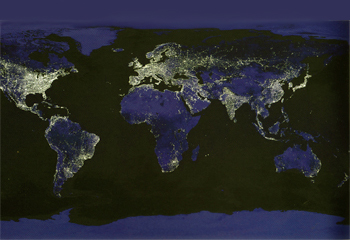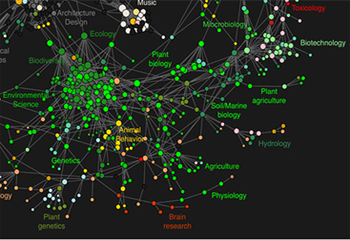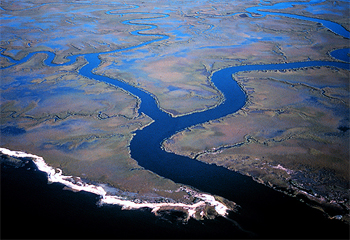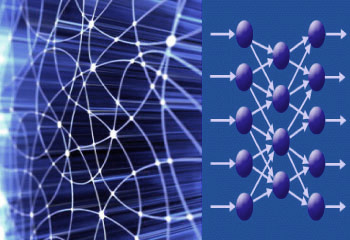
![]()

What IF new methods to track energy usage across building,
transportation, industry can balance energy use and enable
improved planning and decision-making?
__________________________________________________

What IF such studies as the NY Times map above, showing
connections among data searches, could be extended to track
distributed problem-solving teams, and eventually applied to
sustainability challenges?
__________________________________________________

What IF we recognize that the importance of water for life on
Earth demands new systems for ecosystem management which
also inform other problem-solving eco-systems?
__________________________________________________

What IF our growing knowledge about neural networks can
guide management of complex, co-dependent processes?
__________________________________________________
![]()

What IF we develop next generation social networks that harness the objectivity of collective intelligence and the subjectivity of collaborative intelligence, tapping our diversities of expertise and POVs for pattern recognition to build a PLANET INNOVATION NETWORK (PIN)tm
![]()
![]()
![]()
![]()
![]()
![]()
__________________________________________________
HOME | | M|M Forum![]()
![]() back to top
back to top
![]()
© 2011 – 2013 Planet Innovation
What IF? a new paradigm for media-driven collaborative computing enables us to learn and solve problems in new ways?
THE MICROBES MIND FORUM offers a testbed for new collaborative methods and support systems, examining how life-like systems offer principles and associated techniques for accelerating innovation.
What IF? self-organizing synthesis in life-like systems can
• shed light on multi-agent systems for collaborative intelligence?
• serve as a Petri dish to develop and test a bottom up method to bootstrap collaborative intelligence? exploring
1.
The origin and synthesis of life/ artificial life as vehicles to examine the principles and dynamics through which matter, data, and people self-organize. What roles do autonomy and pattern recognition play in the self-organization of complex, life-like systems?
2. Darwinian evolution and proposed revisions to traditional Darwinism as models for self-improving computational systems where functioning coherence is achieved through developmental and selectionist mechanisms
3. Synergetic decision systems employing algorithms that evolve toward collaborative intelligence such that the aggregate manifests intelligence not predicted by the behavior of its components, as implied in the collective intelligence of termite colonies, swarms, quorum-sensing in bacteria
4. Self-organizing system attributes, and their broad applicability, from robotics to distributed collaboration, from sustainable remediation (as a complex adaptive system) to computational learning systems
5. Specific, adaptive permeability complementing cycles that alternate open system with closed system attributes, examining the effect of boundary conditions on whole system performance
6. Evolvable rule systems where evolvability is tested for survivability in its present ecosystem, rather than measured against a pre-set future goal, beyond the traditional paradigm generally used, even with genetic algorithms, of ‘reducing the difference between the present state and a goal state.’
7. Facilitated Variation as a computational problem-solving model. The computational genotype is modified, generating a phenotype wherein developmental mechanisms interact and co-evolve with its ecosystem.
8. Homeostasis and its implications for predicting the behavior of complex systems, e.g. in organizational innovation
9. Ecosystem diversity and its correlation to stability, adaptability, and evolvability, enabling more rapid response to perturbations
10. Risk and Tradeoff Optimization, examining the vulnerability of specialization and the efficiency/ inefficiency of generalization
11. Scalability parameters for computational innovation
• Granularity and filtering in pattern recognition
• Timescales, synchronous vs asynchronous updating, hybrid mixes (some aspects specialized, others generalized) e.g. “the lion versus the virus” — When is it best to be biggest (most complex and specialized), versus simple and generalized (or simple and specialized, or complex and generalized)? How can design be optimized by specializing in some domains, while remaining general and adaptable in others?
• How scaling impacts the structure and dynamics of social organizations, such as cities and institutions or corporations, economies of scale, growth, innovation and ecosystem sustainability
Intellectual Objectives
1. Explore the Bio-IT interface and how lifelike systems can inform new approaches to collaborative computing.
2.
Address the practical imperative for more sophisticated design methods across disciplines, responsive to Earth's biosphere as a synergetic system.
Explore how principles of design are manifest in emergent complexity.
3. Consider research priorities toward understanding how interventions in complex ecosystems can impact life's futures, and be informed by research on life-like systems.
Practical Objectives
1.
Present and discuss kernel ideas that could seed projects.
2. Develop thought experiments that can stimulate new discoveries and offer insight into research problems.
3. Brainstorm research proposals that are collaborative, cross-disciplinary, and potentially cross-institutional. Once the concept is clear, details can be developed by distributed teams.
4. A small scale proof of concept of the effectiveness of the CIQ Design Method will be demonstrated through accelerated innovation in the Microbes–Mind Forum, with associated debate and learning materials.
Thought Experiments | Formulating Research Priorities
Advisors and participants not only present their work, but also contribute to thought experiments and collaborative research concepts developed in each Forum. Following each Forum, conveners will document Thought Experiments and associated Research Priorities defined by each Forum. Between forums this website will be updated with knowledge resources reflecting progress on these questions.
Our particular perspective on complexity:
The Diversity of Complexity. Complexity is variously defined. Much of the study of complexity to date emphasizes better analytical tools and objective analysis of complex systems. Although analysis is valuable, it is equally critical to understand how systematic synthesis drives the creation and sustenance of complex, adaptive systems.
The Intellectual Opportunity. To understand how self-organization produces complex systems, the MM Forum focuses on process, examining how self-organizing systems operate — how the simple becomes functionally and effectively more complex. The evolutionary and developmental mechanisms of life-like systems manifest autonomy, effective “pattern recognition,” and response, driving self-organization. Our hypothesis is that these capacities underpin collaborative intelligence. Ultimately, what is learned from examining how simple systems self-organize to become more complex can reveal principles applicable to environmental sustainability, and decision support for complex problem-solving challenges, all of which must grow and evolve as self-organizing, adaptive systems.
Synthesis, and its counterpart, design, are processes that can be as systematic and rigorous as analysis, harnessing tools, such as modeling and simulation, active research methods, and guided interventions to explore how human designers and engineers can constructively participate in the ecosystems to which we belong.
Our core theme, COLLABORATIVE INTELLIGENCE, is reflexive.
We will pilot test the CIQ method, and associated support systems, before extending it to larger distributed collaboration challenges, such as decision support for eco-sustainability. Once applied to drive accelerated innovation on a small scale, we'll move on to implement an expanded, distributed CIQ experiment. As we "keep our eyes on the world," we'll gather a "genetic diversity" of views on reality to drive the next innovative breakthrough.